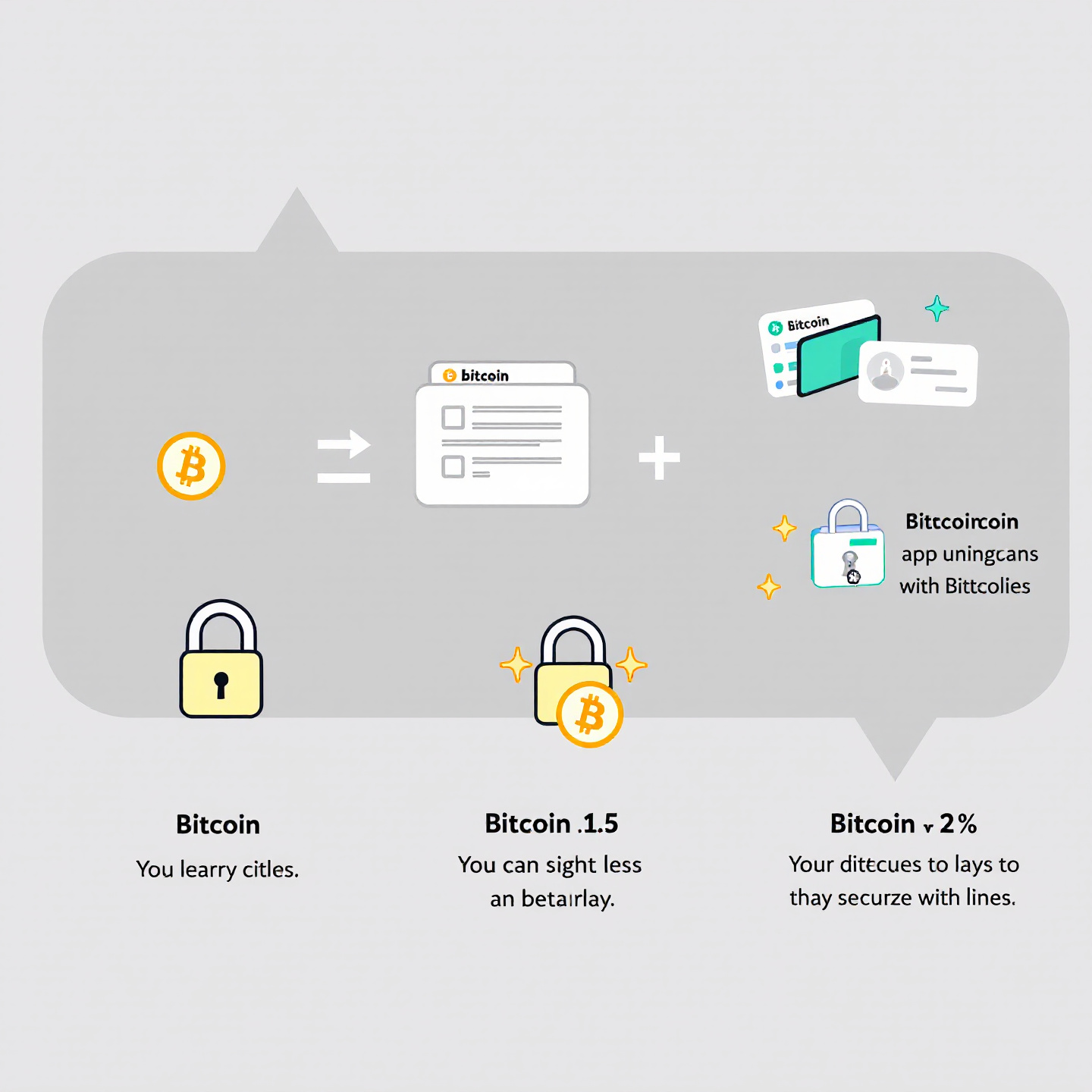Understanding the Importance of Bitcoin Security
As digital currencies like Bitcoin continue to grow in popularity, securing your assets has become a critical consideration. Bitcoin, by its nature, operates on a decentralized network, which means the responsibility of safeguarding it lies entirely with the user. Unlike traditional banking systems, there are no central authorities to retrieve your funds if they are lost or stolen. This makes understanding the types of wallets and how to use them securely a vital aspect of cryptocurrency ownership. Educating yourself about cybersecurity measures, such as avoiding phishing schemes, is equally important.
What Are Bitcoin Wallets?
A Bitcoin wallet is a digital tool that allows users to store, send, and receive Bitcoin. Wallets interact with the blockchain to enable these transactions and manage the cryptographic keys necessary to access your Bitcoin. They come in various forms, each with distinct features, levels of security, and usability. Selecting the right wallet depends on your usage patterns, technical expertise, and security requirements. For example, a trader might prefer a hot wallet for quick access, while a long-term investor might opt for a cold wallet.
Hot Wallets: Convenience vs. Risk
Hot wallets are connected to the internet, making them convenient for frequent transactions. Examples include mobile wallets, desktop wallets, and web wallets. While they offer ease of use, their constant internet connection makes them vulnerable to hacking and phishing attacks. If you rely on hot wallets, ensure you use reputable providers and enable features like two-factor authentication (2FA). Additionally, monitor wallet activity regularly to detect unauthorized access promptly.
Cold Wallets: The Gold Standard in Security
Cold wallets operate offline, making them immune to most online threats. These include hardware wallets and paper wallets. Hardware wallets, such as Ledger or Trezor, are physical devices that securely store your private keys. Paper wallets involve printing your private and public keys on paper, offering a low-cost offline storage method. Cold wallets are ideal for long-term investors who prioritize security over convenience. Keeping cold wallets in secure environments, such as a bank safe, further reduces risks.
Hardware Wallets: Balancing Security and Usability
Hardware wallets provide a practical balance between security and usability. These devices are small, portable, and designed specifically to keep your private keys secure. They require a PIN to access and are compatible with many software wallets, allowing users to manage their Bitcoin securely. Regular updates to firmware and purchasing devices from official channels are crucial for maintaining their security. Avoid buying second-hand hardware wallets to mitigate tampering risks.
Paper Wallets: A Low-Tech Alternative
Paper wallets are an offline storage method where private and public keys are printed on paper. While they offer a high level of security against digital threats, they come with physical risks such as damage, theft, or loss. To mitigate these risks, store paper wallets in waterproof, fireproof safes and create multiple copies kept in separate secure locations. Ensure the printing process is conducted on a device disconnected from the internet to minimize exposure.
Mobile Wallets: On-the-Go Accessibility
Mobile wallets are applications installed on smartphones, offering convenience for everyday transactions. While they are easy to use, their security depends heavily on the phone’s operating system. Always download wallets from official app stores, keep your device updated, and avoid using public Wi-Fi when accessing your wallet. Enabling biometric authentication, if available, can provide an additional layer of security.
Desktop Wallets: Control with Added Features
Desktop wallets are software programs downloaded to your computer. They often offer advanced features like node support and transaction tracking. However, they are vulnerable to malware and hacking if the computer is compromised. Using strong passwords, enabling encryption, and installing reliable antivirus software are essential for securing desktop wallets. Running periodic malware scans further safeguards your funds from threats.
Web Wallets: Easy Access with Risks
Web wallets are hosted on cloud-based platforms, accessible from any internet-enabled device. They are highly convenient but come with significant risks due to their reliance on third-party providers. Choose providers with robust security protocols and consider pairing web wallets with hardware wallets for enhanced security. Reviewing terms of service and privacy policies ensures you understand how your data is handled.
Multi-Signature Wallets: Adding an Extra Layer
Multi-signature wallets require multiple keys to authorize a transaction, reducing the risk of unauthorized access. They are particularly useful for businesses or joint accounts, ensuring no single party can move funds without consent. Implementing this feature adds complexity but greatly enhances security. Documenting the process and storing backup keys safely ensures smoother operations during emergencies.
Backup and Recovery: Preparing for the Unexpected
Regularly backing up your wallet is essential for recovering funds in case of loss or damage. Store recovery phrases or seed words in multiple secure locations and never share them with anyone. Hardware wallets often provide backup options that should be used immediately upon setup to ensure seamless recovery if needed. Testing recovery processes periodically validates the reliability of your backups.
Best Practices for Bitcoin Security
Storing Bitcoin securely involves more than just choosing the right wallet. Use strong, unique passwords for each wallet, enable 2FA, and stay informed about the latest security practices. Diversify your storage methods to minimize risks and avoid sharing sensitive information online. By combining these strategies with secure wallet types, you can protect your Bitcoin from threats effectively. Educating friends and family about these practices also promotes wider security awareness.
